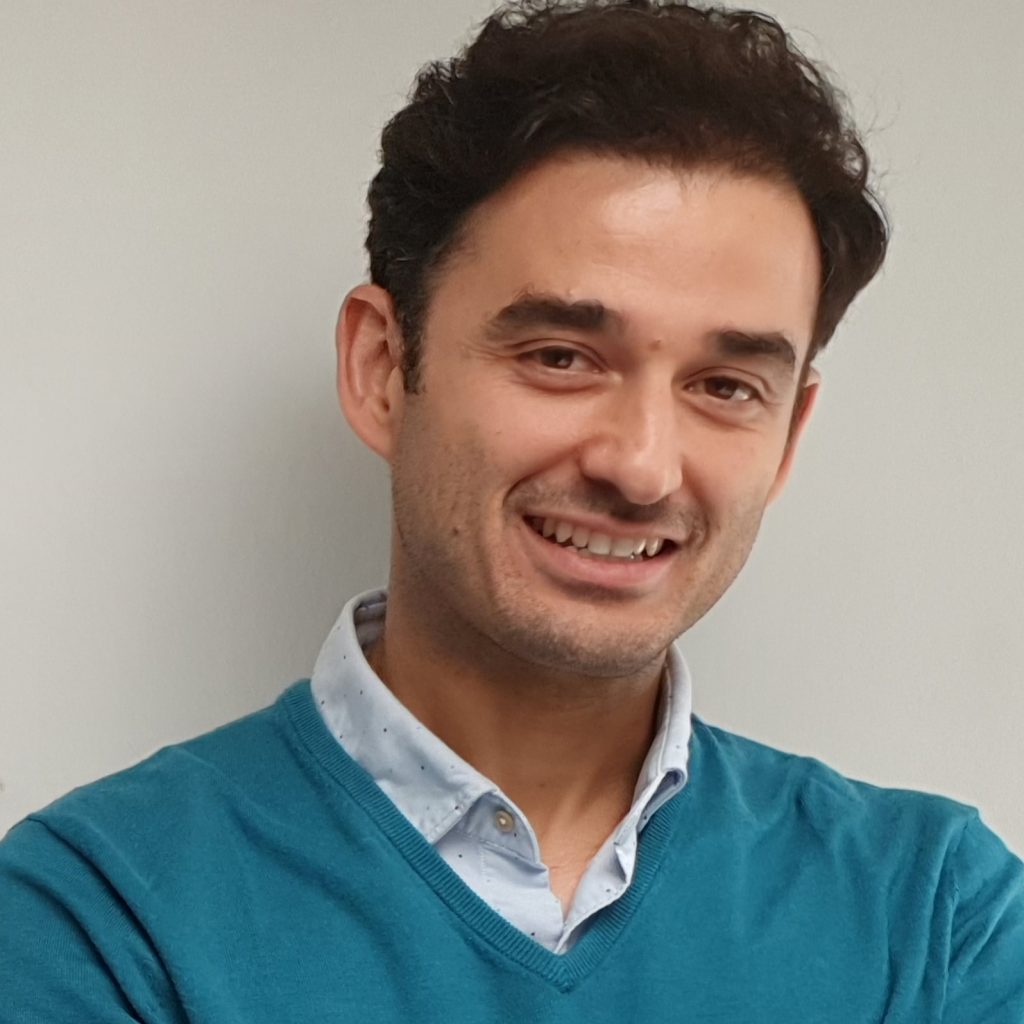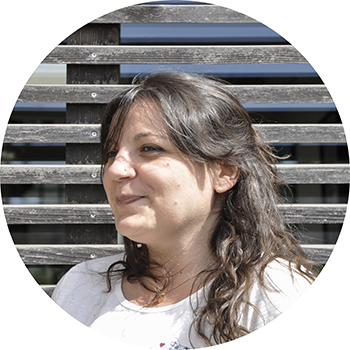An interview with Mehdi Magha, General Director HI Luxembourg, and Francesca Randazzo, Livelihood Manager & Specialist at HI Luxembourg
How did you get involved in inclusive finance?

Mehdi Magha (MM): I’ve been involved in the inclusive finance sector since joining Handicap International Luxembourg (HI Luxembourg), where I discovered all HI’s expertise in this sector. Before HI Luxembourg, I worked in the humanitarian sector and for Médecins sans Frontières (MSF) for several years.
HI has been active in the inclusive finance sector for 30 years. The first project was set up in 1993 in Cambodia. It was a microcredit project that became, in 2001, a microfinance institution (MFI), ADC that reached 100 000 clients (2203). That same year, a social credit pilot project in partnership with ADC was launched with 150 recipients.
The goal of this project was to build a bridge between social issues and microfinance and create opportunities for the most vulnerable people. In fact, HI’s core recipients are the most vulnerable individuals, including people with disabilities and those excluded from the system and therefore from microfinance. The aim was to implement tailored financial loan plans in order to launch income-generating activities and provide individual support and mentoring.
HI was also active in inclusive finance in the Central African Republic and Kenya. In Kenya, the project specifically targeted recipients with HIV.
2006 was a turning point in inclusive finance at HI with the publication of the article “Good Practices for Economic Inclusion of People with Disabilities”, which highlighted the fact that only 0.5% of MFI customers had a disability. Based on this article, HI, in partnership with Accion, provided technical assistance to various organisations, such as Fundacion Paraguaya, in this area.
Today, HI works with several financial service providers in the framework of its economic inclusion projects, such as YPSA in Bangladesh, the Somali Microfinance Institution in Ethiopia or Palmis in Haiti to mention a few; and mainly provides technical assistance for the financial inclusion of people with disabilities.

Francesca Randazzo (FR): At HI, inclusive finance is part of economic inclusion. Inclusive finance projects are part of a global strategy which makes it possible to reach populations such as refugees. HI works on economic inclusion projects in refugees’ camps and very rural areas and connects people with local financial institutions or those.
As for what led me to inclusive finance, I was initially very interested in the international cooperation sector when microfinance was starting to be known. I was not an economist and had no financial background. But I decided to do a master’s degree in microfinance. It was a personal challenge. I then did an internship at a microfinance institution in Peru and gradually built my career at organisations that worked in financial inclusion such as the ILO and ADA in Luxembourg.
I joined HI to explore another dimensions of inclusion through economic inclusion. HI works a lot in unstable conditions with populations that are very excluded.
Before that, I had worked in Latin America. When I came to HI, my eyes were opened to the challenges of economic and financial inclusion in unstable environments, for example in the Somali Region in Ethiopia with problems of internal displacement of populations, or in Uganda.
Could you describe the work done by HI Luxembourg in inclusive finance? And what makes it different from other inclusive finance players?
MM: Partnership is very important in HI’s work because it gives HI’s recipients better access to microfinance institutions. HI provides technical assistance to MFIs to help them develop their inclusive policy.
HI also supports savings groups when there are no microfinance institutions. Specifically, under the framework agreement with the Luxembourg Ministry of Foreign and European Affairs (MAEE) – Directorate for Development Cooperation, HI has a project in Ethiopia with a savings group that HI connects with The Somali Microfinance Institution, the only MFI in the Somali Region, with the ability to set up deposit accounts and get loans.
Capacity building for Disabled People Organisations (DPO) when there is no MFI is also organised. For example, in Haiti, HI provides revolving funds to finance start-up activities. This project is also co-funded by Luxembourg.
HI’s approach to inclusive finance is in line with its approach to inclusion. For HI, financial inclusion is first and foremost an analysis of financial products to identify whether they are accessible and inclusive. HI then trains those responsible for granting loans to ensure that the most vulnerable and disabled people are included. The hiring of staff specialised in inclusion is promoted as it provides technical support, analyses barriers and access, and tries to find solutions to these barriers.
FR: The way we view the notion of inclusion is very specific. Inclusion also involves the person. For example, in terms of economic inclusion, HI offers models with a lot of coaching and personalised support for project owners. In addition, HI provides assistance to players such as MFIs and local and national governments. HI also advocates at the political level by putting emphasis on what inclusion is.
What projects are you currently working on?
MM: HI currently has a “Graduation Model” project in Bangladesh in response to the needs of the poorest households. It is creating a combination of social safety nets such as savings promotion, technical training, and support for the creation of income-generating activities with personalised social support.
HI is providing technical assistance to BRAC in Uganda; it also has economic resilience projects with strong savings components in Mali, Burkina Faso, Niger and Chad; microenterprise support projects in Haiti, Chad and Colombia; and savings group support projects. Cash activities have been implemented in the Central African Republic and Colombia.
FR: Cash activities are implemented in emergency and post-emergency situations. They provide humanitarian assistance. For instance, a cash assistance system was set up in Colombia in response to the COVID crisis. Recipients could get a small amount of money to meet their basic needs via Financial Service Providers.
What is your key interest in inclusive finance?
MM: Inclusive finance can be a real lever for the economic inclusion of people who are excluded, the most vulnerable.
FR: Personally, I’m very interested in sustainable finance. All in all, it’s interesting to see how we try to reach populations such as refugees and young people through microfinance. I’m also interested to see how, with HI, we can try to find joint solutions with “traditional” inclusive finance players in order to work with populations with which they have not necessarily had much contact before.
What are the biggest challenges facing inclusive finance today? And how could InFine.lu and Luxembourg help tackle them?
MM: It’s important to define the concept of inclusion and the methodology to apply behind it. HI can take something to this level because it’s really what makes us unique. Another challenge is to make high-quality financial services readily accessible to people who are not only poor but excessively poor, “the excluded from the excluded”. How to ensure that everything that’s digital and Fintech is inclusive?
It’s also about ensuring that inclusive finance finds its way into the sustainable finance agenda. How to meet the more global objectives of sustainable finance through inclusive finance?
Personally, I expect InFiNe.lu to be able to get in touch with key people in inclusive finance to find effective solutions, thereby creating impact together and sharing our expertise in the field of inclusion.
For me, Luxembourg is the perfect place to tackle this issue. The general public and the financial sector are already showing interest in this area; we now need to encourage collaboration.
FR: Efforts have long been under way in Luxembourg with various types of players, from civil society and the private sector. As for the Luxembourg government, there is a commitment to sustainable finance. The challenge is for everyone to speak the same language and find ways to work together.
© Christophe Smets / Handicap International
InFiNe is the Luxembourg platform that brings together public, private and civil society actors involved in inclusive finance. The value of InFiNe lies in the wide range of expertise characterised by the diversity of its members.
With the support of

Inclusive Finance Network Luxembourg
39, rue Glesener
L-1631 Luxembourg
G.-D. de Luxembourg
Tel: +352 28 37 15 09
contact@infine.lu
R.C.S. : F 9956
Legal notice
Privacy notice
Picture 1 © Pallab Seth
